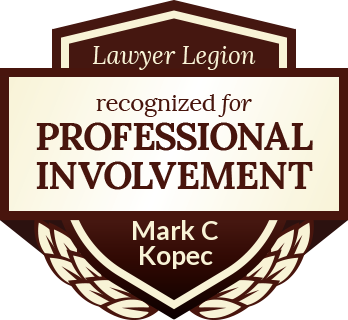Agency After Death: Rosebrook v. ESEP 1
The Baltimore Medical Malpractice Lawyer Blog delves into the intricacies of Maryland medical malpractice cases. In this post, I unravel the complexities of agency law and a lawyer’s filing of a notice of appeal after the client’s death. The case under scrutiny is the Court of Special Appeals reported opinion in Rosebrook v. Eastern Shore Emergency Physicians, LLC, 221 Md. App. 1 (2015).
Factual Background
The plaintiff was working as a nurse’s aide at a nursing home and fell on a wet floor. EMTs took her to the Emergency Room with complaints of hip, knee, and lower back pain. The ER records referenced hip and knee pain. X-rays of both were normal. The ER discharged with a diagnosis of hip and knee contusions. (Op. at 3).
As her condition worsened, the plaintiff went to an orthopedist, and a CT scan revealed a burst fracture of the L3 vertebrae. (Id. at 4). She had spinal fusion surgery. In rehabilitation, she was treated for an infection and had a ventricular fibrillation. It left her in a vegetative state before she passed over seven years later. (Id. at 4-5).
While she was in a vegetative state, the plaintiff’s guardian brought a lawsuit for medical malpractice in the Circuit Court for Baltimore City, which the parties later agreed to transfer to the Circuit Court for Queen Anne’s County. The jury found for the defense. The plaintiff filed a motion for judgment notwithstanding the verdict, which the circuit court denied. During the appeal period, the plaintiff died. The guardian then filed the notice of appeal. (Id. at 5).
Court of Special Appeals on Agency After Death
The defense filed a motion to dismiss the appeal after learning that the plaintiff had died before the guardian filed it. The defense contended that the guardian lacked the authority to file the appeal. Further, the plaintiff’s personal representative of the estate still had not been substituted as the proper party as of the filing of the motion to dismiss. The defense added that the plaintiff’s lawyer lacked legal authority under agency law to pursue the appeal. (Id. at 5-6).

Afterward, the plaintiff received a Letter of Administration for the deceased’s estate and filed a notice of substitution in the CSA. Plaintiff also filed an opposition to the motion to dismiss. (Id. at 6-7).
After oral argument, the plaintiff filed a motion requesting a retroactive extension of time to file the substitution. The defense opposed it. It cited Maryland Rule 1-203(d), which provides representatives of a deceased party with at least 60 days to substitute the proper party, a time period that the court can extend only on a showing of good cause and a lack of prejudice to the rights of any other party. The defense argued there was no good cause for the delay. (Id. at 7-8).
The CSA observed that a guardianship terminates upon the death of the disabled person. ET § 13-221(b)(2). (Id. at 10). In addition, an agent’s authority terminates upon the principal’s death. Accordingly, an attorney does not have the authority to file an appeal for a client who has died. (Id. at 11).
Case of First Impression
This case, however, presented a unique legal issue-the authority of an agent after the principal’s death, but before the agent learns of it. The plaintiff argued that the guardian had authorized the attorney to file the notice of appeal before the deceased’s death. The attorney indeed filed the appeal 16 hours after the death, but before learning of the death. This issue was a question of first impression in Maryland, adding intrigue to the case. (Id. at 11-12).
Section 3.07(2) of the Restatement (Third) of Agency stated that termination of agency is effective only when the agent has notice of the principal’s death. The CSA chose to adopt this rule to avoid harsh consequences. Accordingly, the attorneys correctly noted the appeal. (Id. at 12).
In addition, Rule 2-241 does not impose a time requirement for filing a notice of substitution upon the death of a party. Consequently, the notice of substitution in this case was valid to allow the personal representative to pursue the appeal. The CSA denied the motion to dismiss. (Id. at 14-15).
Commentary by Baltimore Medical Malpractice Lawyer Mark Kopec on Agency After Death
The key factor in this case was that the attorney had not yet heard about the death of the client at the time that the attorney filed the notice of appeal. That is a rare factual situation.
More broadly, lawyers must be prepared to address the death of a client during litigation with the utmost promptness. If the death occurs before a scheduled deadline, there may be very little time to act. In such a situation, the lawyer may have to work swiftly with the family to promptly identify a personal representative and then open an estate so that the court can appoint that person.
Fortunately, in Maryland, each county has an Orphans’ Court where someone may open an estate. It is often a relatively easy and quick process. You should be able to obtain the Letter of Administration promptly and then file the appropriate notice of substitution to make the personal representative the official party in the lawsuit.
In Part 2 of this post, I will address the CSA’s ruling on the defendant doctor’s testimony as to habit.
You can read other Blog posts on the status of Parties.
Mark Kopec is a top-rated Baltimore medical malpractice lawyer. Contact us at 800-604-0704 to speak directly with Attorney Kopec in a free consultation. The Kopec Law Firm is in Baltimore and helps clients throughout Maryland and Washington, D.C. Thank you for reading the Baltimore Medical Malpractice Lawyer Blog.





